England's Dreaming
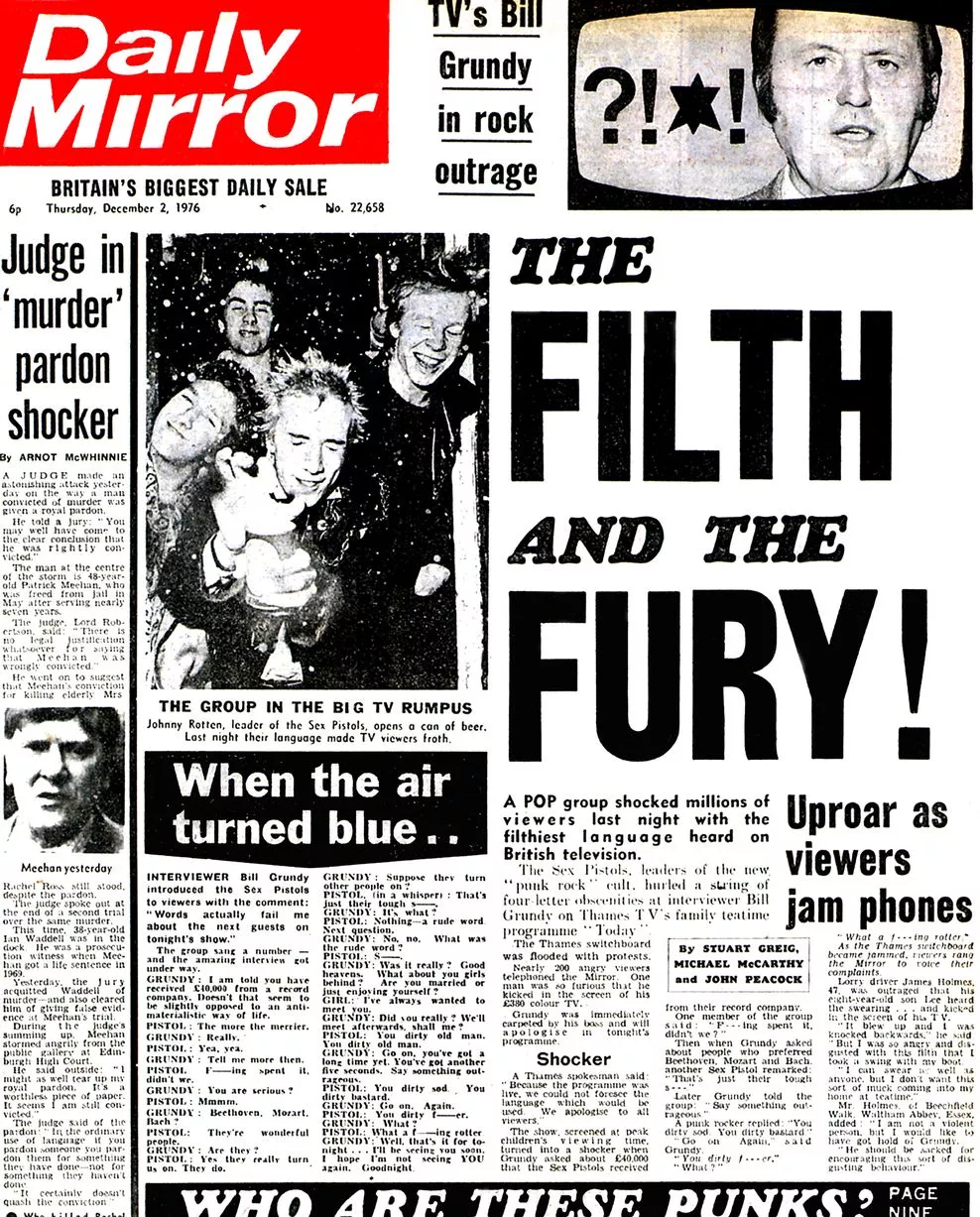
How the Sex Pistols declared war on England and won.
The story of the Sex Pistols is a complex one, marred by chaos, tragedy, controversy, poverty, anger, art and one undeniably brilliant album. 'Never Mind The Bollocks, Here's the Sex Pistols'
It's a story that involves a whole host of people from the band themselves, to their complex manager, Malcolm McLaren and even British Intelligence. A story of a band the likes we had not seen before, and we have definitely not seen since.
Early Days:
The Sex Pistols, as we know them, did not form until 1975 when John Lydon joined the band. However, the guitarist Steve Jones and drummer Paul Cook had been in bands since 1972 with varying line-ups of their friends. Original bass player Glen Matlock would join Steve and Paul in 1974; this is also around the same time another key character in this story would come into the fray. Malcolm McClaren. Steve and Paul spent a lot of time in McLaren's clothes shop on London's King's Road, which is also where Glen worked. The three of them continued for a while, but they needed a frontman.
John Lydon entered the shop one day and was spotted by Steve Jones. Complete with green hair and a homemade 'I HATE Pink Floyd” T-shirt. After a rather unique audition where Lydon mimed to an Alice Cooper song, initially, the rest of the band were unimpressed. Eventually, the band began to rehearse together, and the rest is history.
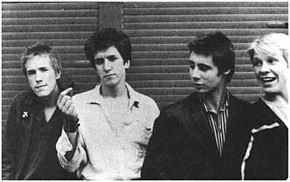
After a few months of rehearsals, the band played its first gig, organised by Glen Matlock, at London's Saint Martin's College. Performing several covers by 'The Who, Small Faces and even The Monkees.' Before the plug was pulled. More gigs came and went, and the band were building a small following, who would later go and form their own bands. Siouxsie Sioux, Steven Severin and Billy Idol were all early followers of the Sex Pistols.
A new style was emerging in London, with key figures being there at the start. Jamie Reid, a friend of McLaren's, began to work on the band's image and artwork. His cut-up lettering, based on notes left by kidnappers or terrorists, were used to create the classic Sex Pistols logo and many subsequent designs for the band. McClaren and his girlfriend Vivienne Westwood had begun to adopt the band's punk style, and adopted these ideas in their shop on the King's Road.
London wasn't the only city affected by punk. After a Sex Pistols gig at the Marquee in February 197,6, which was reviewed in the NME, along with an interview by Steve Jones where he declared Actually, we're not into music. We're into chaos.' Two students in Manchester, Howard Devoto and Pete Shelley, read that and were inspired to go and see the band, before heading back up North to form 'Buzzcocks'.
Shelley and Devoto would then organise the band's first Manchester gig, on 4th June 1976 at the Lesser Free Trade Hall. Tony Wilson attended this gig in Manchester among many others, and he would give the band their first TV Appearance in August 1976. Now these were no longer London Outsiders; they had been propelled to people's living rooms.
Bill Grundy Incident:
After signing to EMI in October 1976, the band were to appear on Bill Grundy's Today program. Last-minute replacements for Queen, and what happened next, would be the first incident that made the band public enemy number one. All of the band and the host were intoxicated during the interview. During the interview, encouraged by Grundy, Jones said the band had "fucking spent" its label advance, and Rotten used the word "shit". Grundy, who had later claimed to have been drunk, then attempted to flirt with Siouxsie Sioux, who replied that she had "always wanted to meet" him. Grundy responded, "Did you really? We'll meet afterwards, shall we?", prompting Jones to repeatedly swear.
The band understood what they were doing, and more importantly, who they were dealing with; they understood they were dealing with a drunk. The interviewer was provoking the band, and they bit back, but also, more importantly, defended their friends, especially Siouxsie Sioux.
It was an incident that proved to be a watershed one for the band; it made them a household name, even though they had only released one single, 'Anarchy in the UK', they had become front page news, and had helped bring the punk movement to the mainstream.
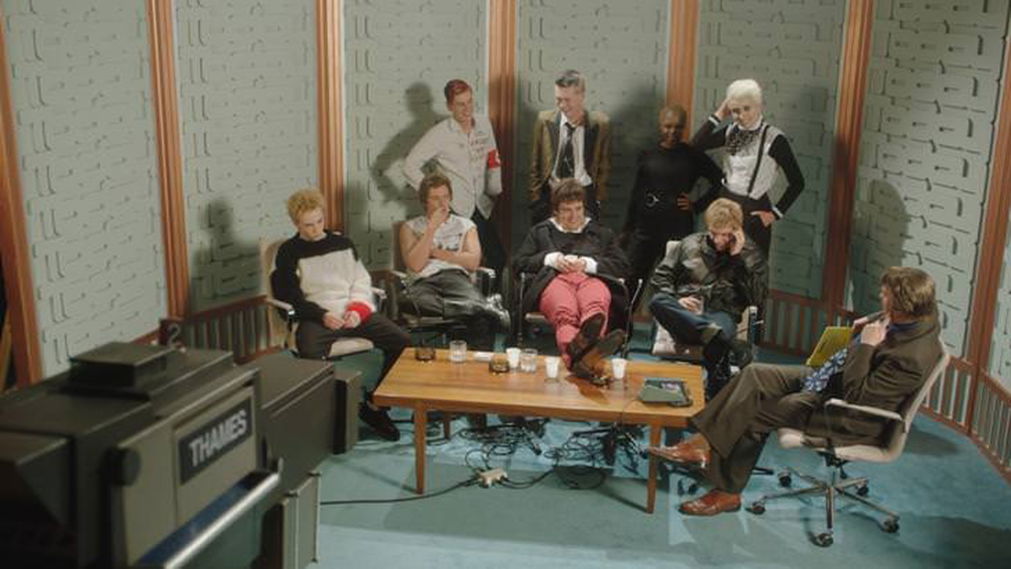
It ultimately made things quite difficult for the band; this newfound notoriety meant the UK Anarchy Tour to promote the new single was marred with controversy and cancelled gigs. Local Authorities and concert organisers would cancel gigs. The tour was scheduled to have about twenty or so gigs and featured support from The Dammed, Johnny Thunders & The Heartbreakers and The Clash. Yet due to fears from organisers and local authorities, only about seven gigs took place.
Even the band's only record label had a problem with the band. It has been reported that some packers at EMI refused to handle the band's single 'Anarchy in the UK' due to the lyrical nature of the song. Controversy followed the band. The appearance with Bill Grundy seemed to be the catalyst for this chain of events.
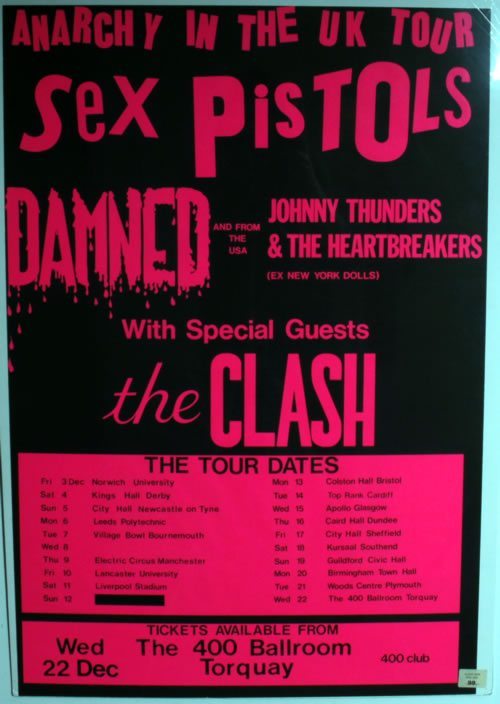
Sid...
In February of 1977, following a decision by the band's manager, Glen Matlock left the band. He was replaced by Johnny Rotten's friend John Simon Ritchie, who would become known as Sid Vicious, or, if you are Freddie Mercury, Simon Ferocious.
Sid's recruitment to the band was a decision that would ultimately be a bad one. The first thing it did was remove an established songwriter and musician in Glen Matlock, and replace him with someone who could not play bass. It also created a bigger divide in the band, creating two camps. Paul Cook and Steve Jones. Then, John and Sid, two opposing camps.
Jones has since described the decision as being 'to Cookie and me, it just didn't make any sense to have someone who couldn't play a note trying to fill Glen's shoes, but it was never about the music for McLaren ... from the minute Sid joined the band, nothing was ever normal again.'
Sid was a huge Sex Pistols fan and had been going to the band's gigs from the very early days. He loved the band, but once he joined. It was a level of fame and notoriety he could not handle. It would slowly destroy him. The chaos and carnage that came with the band were not healthy for him. In early 1977, Sid met Nancy Spungen, and this began the beginning of the end. Often, the band members didn't agree about things. However, one thing they all agreed on was Nancy being a bad person. Nancy introduced heroin to Sid and got him hooked. Lydon later wrote, 'We did everything to get rid of Nancy ... She was killing him. I was absolutely convinced this girl was on a slow suicide mission ... Only she didn't want to go alone. She wanted to take Sid with her.
Jubilee...
Here is where the story gets mental.
After being dropped by EMI, the band signed with A&M Records in March 1977 with a press ceremony held outside Buckingham Palace. It became one of the most significant record signings ever due to where it was held, but also how long the contract lasted, because believe me, it was not very long at all. Just a week.
The band signed the deal on the 9th March 1977, and it was terminated on the 16th March 1977, where they were paid £125,000 as a severance settlement.
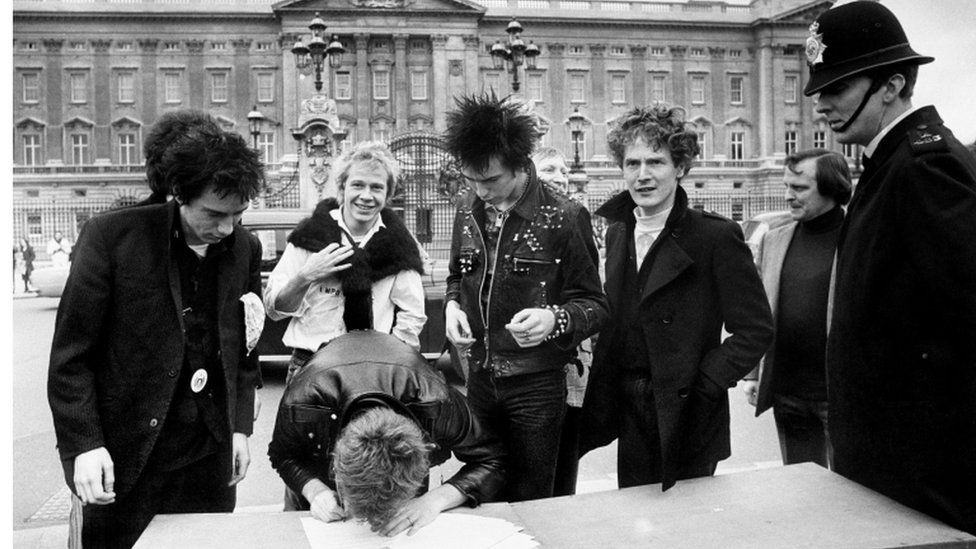
A&M had already pressed 25,000 copies of the band's next single, 'God Save the Queen'; however, the vast majority of these were destroyed due to the band no longer being on the label. Those that were not destroyed are worth quite a lot of money. In 2019, one of these pressings sold at auction for £13,000.
Virgin Records became the band's third label in little more than six months, and they became the label that would release the band's crowning jewel. 'God Save the Queen', which would be released on the 27th May 1977, a record that became one of the most censored ever. Radio Stations would not play it, and several major chains refused to sell it.
This did not deter the band or the label, though. Released to coincide with the Queen's Silver Jubilee. By the time Jubilee weekend rolled around, just a week and a half after the initial release of the song, it had sold over 150,000 copies and was destined to hit the top spot on the UK's single chart.
The 7th June 1977 was a big day for the band, they had chartered a boat to let the band play their songs down the Thames, past the Houses of Parliament and to mock the planned river procession planned for the Queen on the 9th of June. It ended in chaos with the Police bringing a stop to the concert, and many of he band's entourage being arrested.
With the official UK record chart for Jubilee week about to be released, the Daily Mirror predicted that "God Save the Queen" would be number one; however, it placed second, behind Rod Stewart's 'I Don't Want to Talk About It'. McLaren later claimed that CBS Records, which was distributing both singles, told him that the Pistols were outselling Stewart two to one. There is evidence that exceptional measures were taken by the British Phonographic Institute, which oversaw the compilation of the UK chart, to exclude sales from Virgin's shops for that week. It was definitely Number One, but they could not have it overshadowing the Jubilee Weekend.
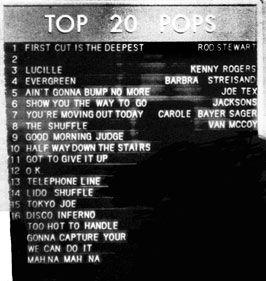
It sent shock waves up and down the country; the band were exposing how people felt, and he was the first to discuss the Royal Family publicly. No one had done this before; the Sex Pistols were the first. The nation was up in arms. Government Members of Parliament even called for the band to be hanged at London’s Traitors’ Gate!
MI5 branded the band as subversive and was worried about the band's presence. It seemed to disrupt the old order like ever before. Files were kept on the members of the band, imagine that. At a time of the Cold War, the Iron Curtain, the threat of Nuclear weapons, files were being kept on four musicians from London. It is mind-boggling.
The Album.
I feel as if I have given you a pretty comprehensive rundown of the story so far, but it is important to remember that the Sex Pistols released an album. One of the most important British albums of all time.
'Never Mind the Bollocks, Here's the Sex Pistols'
The album was released in October 1977 and featured the singles 'Anarchy in the UK', 'God Save the Queen', 'Pretty Vacant', and 'Holidays in the Sun'. Produced by Chris Thomas and recorded by only three members of the band, Lydon, Jones, and Cook, it stood as a defining moment in punk rock history. Sid Vicious was not present due to his lack of bass-playing ability, so Steve Jones instead played all the bass parts himself, giving the record its tight, driving sound.
Made famous by both its striking day-glo cover art and Johnny Rotten’s sneering, anti-singing vocal delivery, the album was nothing short of game-changing. The industry and music fans alike had never heard anything like this before. It was raw, confrontational, and completely unapologetic.
But beyond the chaos and controversy, it’s important to give credit to the music itself. 'Never Mind the Bollocks' still sounds incredibly powerful today. Steve Jones’s wall of guitars and Paul Cook’s relentless drumming formed a solid, muscular backbone that made the album feel urgent and alive. It’s often easy to focus on the scandal and shock value of the Sex Pistols, but the truth is that this album is sonically brilliant, sharp, focused, and full of energy.
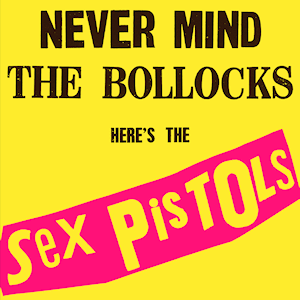
The singles from ‘Never Mind the Bollocks, Here’s the Sex Pistols’ are some of the most iconic and influential tracks in British music history. Each one captured a different aspect of the chaos, rebellion, and frustration that defined the late 1970s.
‘Anarchy in the UK’ was the spark that lit the fuse, a furious, chaotic anthem that perfectly captured the disillusionment of British youth. With Johnny Rotten sneering, “I am an anarchist,” the single became a rallying cry for a generation fed up with authority, social inequality, and the emptiness of modern life.
Released in 1976, it was the public’s first encounter with the Sex Pistols’ uncompromising sound, loud, distorted, and full of venom. Steve Jones’s guitar tone was thick and aggressive, Paul Cook’s drumming relentless, and Rotten’s vocal delivery cut through everything like a blade. For many, it was a line in the sand: rock music would never be the same again.
‘God Save the Queen’, released during the Queen’s Silver Jubilee in 1977, was even more incendiary. It was a national scandal, banned by the BBC and shunned by major retailers. Yet its impact was nothing short of huge. Many still believe that the song was deliberately kept off the top spot in the UK, as it could not have been seen to be the most popular song in Britain in Jubilee Week.
The sneering refrain of “No future” resonated deeply with a generation facing unemployment, poverty, and political unrest. What made it even more remarkable was its musical precision: despite all the fury, the song was tightly constructed, powerful, and unforgettable. The song is one of the most important British singles of the 1970s.
‘Pretty Vacant’ was the band’s most deceptively accessible single, catchy, sharp, and full of attitude. It stood apart from the outright fury of the other singles by pairing a driving, melodic rhythm with a sense of ironic detachment. Rotten’s drawn-out delivery of “vaaa-cant” gave the track its cheeky edge, but underneath was a powerful statement about apathy and alienation in a Britain that felt drained of purpose.
It’s one of punk’s most enduring songs because it’s both confrontational and self-aware it sneers, but it also understands. Musically, it showcased how tight the Pistols could be as a band, with Jones’s riff cutting through like machinery and Cook’s drumming keeping everything locked in. It proved that beneath the chaos, the Sex Pistols were serious musicians with total command of their sound.
‘Holidays in the Sun’ closed out the run of singles with a biting take on escapism and the illusion of freedom. Inspired by the band’s trip to Berlin, where they sought a break from the chaos of fame, it begins with the sound of marching boots, a perfect metaphor for the feeling of being trapped and watched.
The song explores the futility of trying to “get away” from the political and social decay of Britain, because even abroad, that same sense of tension and paranoia remained. Musically, it’s one of their most powerful tracks, full of movement and menace. Rotten’s voice feels like both a complaint and a command, while Jones’s guitar work is explosive, a wall of sound that perfectly mirrors the frustration in the lyrics.
It was an album that inspired those who were living the reality the band were talking about; a social commentary of the lives they were living, but also the lives of millions of others in England. The first and definitive punk album. The sound, the content, the cover, it is what we think of when we think of punk. This was not music made to entertain; it was music made to provoke, to challenge, to tear down. Every note of it felt like a rebellion against the boredom and stagnation of 1970s Britain.
Away from the singles, the album tracks often fly under the radar. ‘EMI’ is a scathing attack on the band’s former record label; it’s one of their favourite tracks and, beyond being a middle-fingered salute to the establishment, it’s a genuinely great song, featuring some of Steve Jones’s most muscular guitar work. ‘Liar’ aims at those in positions of power who lie to the working classes, with one of Rotten’s most venomous vocal performances sneering, mocking, and utterly unforgiving. ‘Submission’ is a brilliantly cheeky track, written to irritate the band’s manager, who wanted them to write about the kink scene he was involved in. Instead, Rotten and Matlock turned the idea on its head, crafting a playful song about a submarine mission, proof of their sense of humour and creative intelligence, qualities often overlooked amid the chaos.
The band are often remembered for the controversy surrounding them and the tragedy that followed, but the music is what truly endures. Their short, explosive time together produced a collection of songs that would inspire countless musicians and reshape British music forever. ‘Never Mind the Bollocks’ wasn’t just an album; it was a cultural explosion. It gave a voice to the unheard, stripped rock back to its raw essentials, and proved that music could still be dangerous. Nearly five decades later, it remains as vital and confrontational as ever, the definitive statement of punk rock and a cornerstone of modern British culture.
The End
The band would break up shortly after the release of their magnum opus. In January 1978, following a gig at the Winterland Ballroom in San Francisco, Lydon walked away. He ended the gig by singing a Stooges cover, 'No Fun' and changing the lyrics. "This is no fun. No fun. This is no fun at all. No fun." As the final cymbal crash died away, Rotten addressed the audience directly—"Ah-ha-ha. Ever get the feeling you've been cheated? Good night" before throwing down his microphone and walking offstage
In fighting within the band had been common; now the band has two camps. Sid was struggling with his heroin addiction, and McLaren and Lydon had always clashed, but now it had gotten to the breaking point. The band was done. They tried to continue, but it didn't work; it was destined to fail. They never performed live after the departure of Lydon and tried to record an album for a failed Sex Pistols film, 'The Great Rock n Roll Swindle', which didn't really work.
Vicious relocated to New York and attempted a career as a solo artist with Spungen as his manager. On 12 October 1978, Spungen was found dead at the age of 20 in the Hotel Chelsea room that she was sharing with Vicious, with a stab wound to her stomach. Police recovered drug paraphernalia from the scene, and Vicious was arrested and charged with her murder.
After being released on bail, Sid was arrested again for having a fight with Todd Smith, brother of the famous American singer Patti Smith. Vicious was released on bail on 1 February 1979. Some time after midnight, following a small party to celebrate his release, he died of a heroin overdose, aged 21.
It came to quite a sad end. However, for a brief time, the Sex Pistols declared war on the old order and won. The world changed forever, both musically and socially. It opened doors that otherwise may never have opened. They scared and shook the establishment to the very core. Sex Pistols were a force to be reckoned with; they had an impact that has not been felt since.
Giving a voice to the working classes up and down the country, and inspiring those to start their own bands.. Traditional media and methods had alienated the working classes before punk. Punk changed it all, the way people dressed, artwork, thanks to people like Jamie Reid, the music that people listened to. It helped empower the downtrodden, gave the marginalised a voice, and became a movement that encompassed everyone.
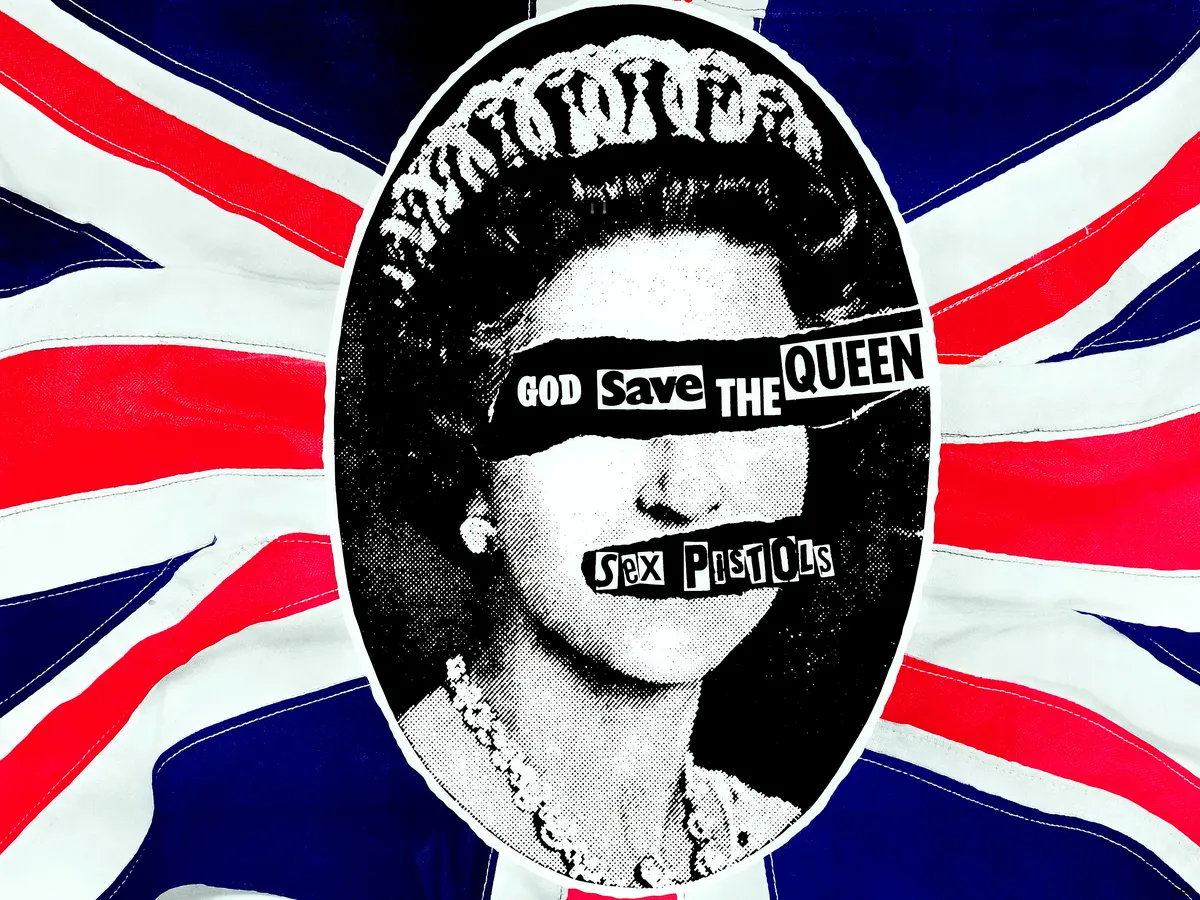
You only have to look at who have been influenced by the Sex Pistols in the years since their formation, but also the years since their break-up, and you can say they were one of the most influential bands of all time.
They would directly inspire The Clash, Siouxsie and the Banshees, the Adverts, Vic Godard of Subway Sect, The Dammed and Ari Up of the Slits. Help start a musical revolution at Manchester with the gig at the Lesser Free Trade Hall, which was attended by Pete Shelley and Howard Devoto, who organised the gig, Bernard Sumner, Ian Curtis and Peter Hook of Joy Division, Mark E. Smith, John Cooper Clarke, Morrissey and Anthony H. Wilson.
Who went on to form Joy Division, The Smiths, New Order, The Fall, Buzzcocks and Factory Records.
The Stone Roses, Oasis, Arctic Monkeys, Kasabian, Nirvana, and so many more have been influenced and continue to be influenced by the Sex Pistols. It is an impact that is undeniable.
I'll end this post with a little snapshot of just how much impact this band had.
They only had one album, and yet it did all of that; it caused court cases due to its provocative cover and contained 12 of the best songs of the 1970s and two of the best pieces of social commentary ever released in "Anarchy in the U.K.," and "God Save the Queen. The live shows have gone down in folklore from the show at the Free Trade Hall to the famous gig at Islington's Screen on the Green. They invented the fashion style punk. They were perveyors of chaos, and were not afraid to say what they believed in. Oh, and they saw the future. Those songs still highlight the same problems we face today, as they did in 1977.
Not bad for a band who were together for only 2.5 years.
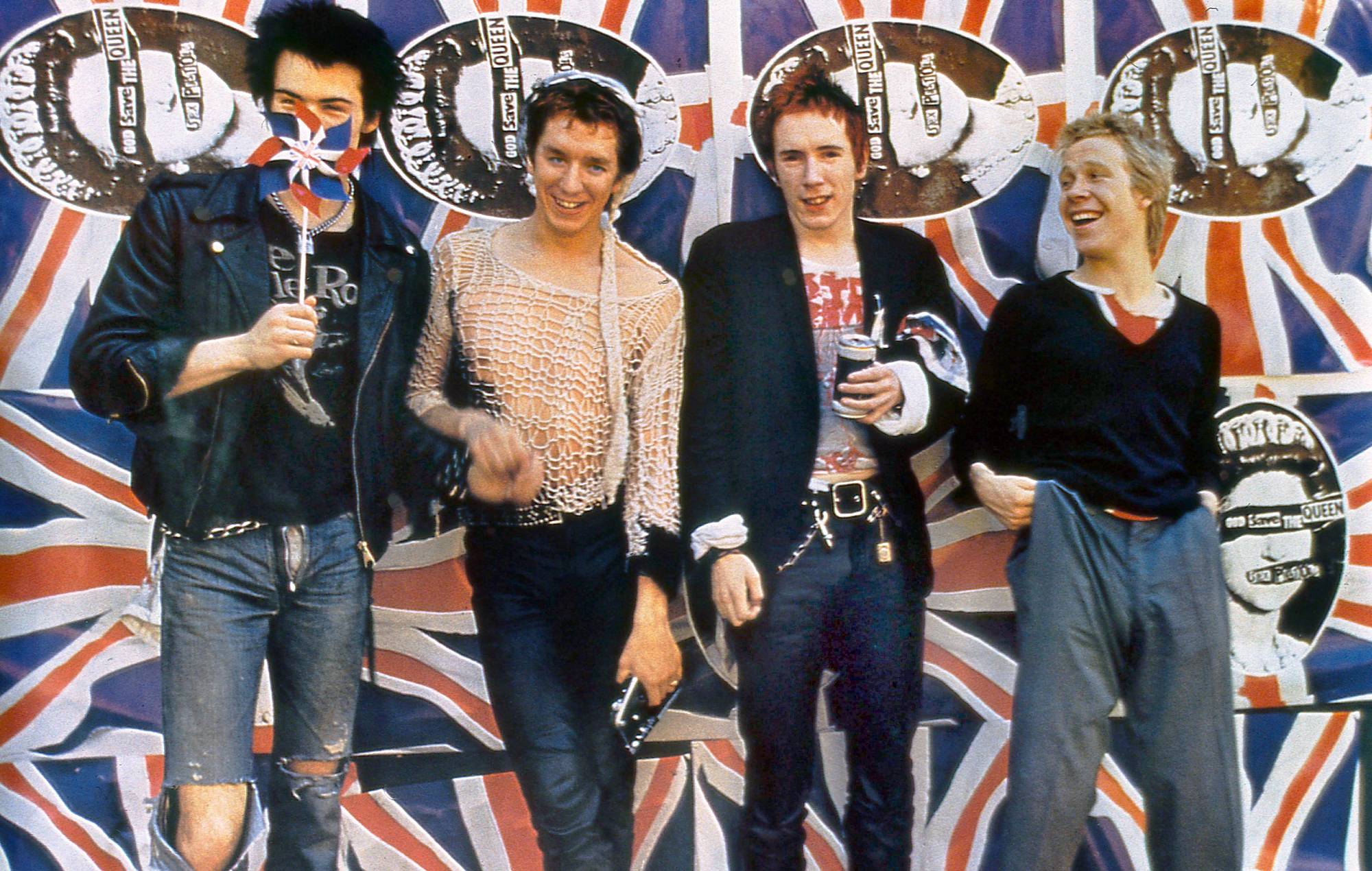
Thank you for reading x